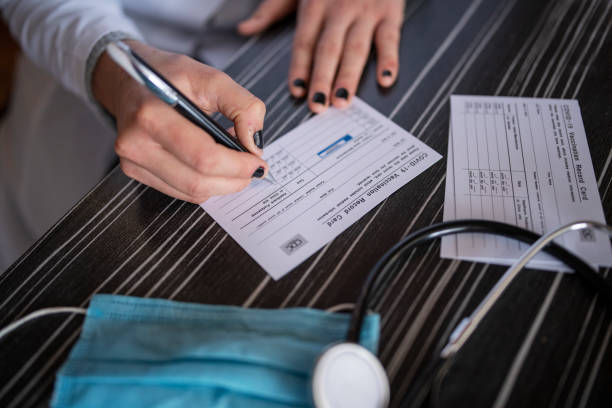Book Appointment Now

The Role of the BSN Nurse in Nursing Research: Advancing Evidence-Based Practice
In an era of rapidly evolving healthcare, The Role of the BSN Nurse in Nursing Research is pivotal to advancing evidence-based practice (EBP). BSN-prepared nurses act as critical conduits between research and clinical care, translating findings into actionable strategies to improve patient outcomes. Unlike advanced practice nurses who design studies, BSN nurses focus on appraising research quality, implementing evidence-based interventions, and educating peers on new guidelines (AACN, n.d.). Their work ensures that innovations in nursing science are ethically and effectively integrated into daily practice, fostering safer, higher-quality care. By bridging the gap between academia and bedside practice, BSN nurses uphold the profession’s commitment to lifelong learning and patient-centered innovation (Polit & Beck, 2023).
Count on our writing experts to deliver 100% custom paper on the role of the BSN nurse in nursing research
Write my nursing essay
The Role of the BSN Nurse in Nursing Research
BSN-prepared nurses serve as translators of research into practice. While they may not lead large-scale studies, their primary responsibility lies in critically evaluating existing evidence and implementing findings at the bedside. According to the American Association of Colleges of Nursing (AACN), BSN nurses are expected to “participate in the research process” by identifying clinical problems, reviewing literature, and applying evidence to improve care (AACN, n.d.). For example, a BSN nurse might analyze a randomized controlled trial (RCT) on pressure ulcer prevention and advocate for adopting new wound care protocols in their unit.
BSN nurses also act as collaborators in research teams. They collect data, monitor patient responses to interventions, and provide feedback to advanced practice nurses or researchers. For instance, during a hospital-wide study on pain management, BSN nurses could document patient pain scores, assess the effectiveness of non-pharmacological interventions, and communicate findings to the research team. Their clinical expertise ensures that studies remain patient-centered and feasible in real-world settings (Polit & Beck, 2023).
Moreover, BSN nurses play a key role in disseminating research to peers. They educate staff about new guidelines, lead journal clubs, and mentor less experienced nurses in understanding research terminology. This fosters a culture of inquiry and empowers entire teams to embrace EBP.
Roles of All Academic Preparation Levels in Nursing Research
Nursing research is a collaborative effort that leverages the expertise of nurses across educational backgrounds:
- Associate Degree in Nursing (ADN)/Diploma Nurses:
ADN nurses focus on implementing EBP protocols rather than designing studies. Their role includes adhering to research-based policies (e.g., infection control guidelines) and assisting with data collection under supervision. However, their limited training in research methodologies restricts their ability to critique or lead studies (AACN, n.d.). - BSN Nurses:
As discussed, BSN nurses critically appraise research, apply findings, and participate in QI projects. Their education emphasizes understanding research designs, ethical principles, and statistical basics, enabling them to identify biases or gaps in studies (Melnyk & Fineout-Overholt, 2023). - Master of Science in Nursing (MSN) Nurses:
MSN-prepared nurses often lead QI initiatives and design EBP changes. For example, an MSN nurse might conduct a pilot study on reducing hospital readmissions and use the results to revise discharge protocols. They also mentor BSN/ADN staff in integrating research into workflows. - Doctor of Nursing Practice (DNP) and PhD Nurses:
DNP nurses focus on translating research into systemic changes, such as developing hospital-wide EBP guidelines. PhD nurses conduct original research, secure funding, and publish findings. For example, a PhD nurse at the Mayo Clinic might investigate the impact of nurse staffing ratios on patient safety (Mayo Clinic, n.d.).
Essential Skills for BSN Nurses to Critique Research
To effectively evaluate research, BSN nurses must cultivate the following competencies:
- Critical Appraisal Skills:
Nurses must assess a study’s validity by examining its methodology, sample size, and potential biases. For instance, a BSN nurse reviewing a study on telehealth effectiveness should question whether the sample population reflects their own patient demographics (Polit & Beck, 2023). Also read: NURS6052 Walden Essentials of EBP Conduct Critical Appraisal - Understanding Research Designs:
Recognizing the strengths and limitations of quantitative (e.g., RCTs, cohort studies) and qualitative (e.g., phenomenology, grounded theory) designs is crucial. A BSN nurse should recognize that an RCT provides strong evidence for causality but may lack generalizability. - Statistical Literacy:
Basic knowledge of terms like p-values, confidence intervals, and effect size helps nurses interpret results. For example, a p-value <0.05 indicates statistical significance, but a BSN nurse must also consider whether the effect size is clinically meaningful (Melnyk & Fineout-Overholt, 2023). Check out Nursing Statistics discussion - Ethical Judgment:
Nurses must evaluate whether studies adhere to ethical standards, such as informed consent and confidentiality. A BSN nurse might question whether a vulnerable population (e.g., dementia patients) was adequately protected in a study. - Communication Skills:
Translating complex findings into actionable recommendations for interdisciplinary teams requires clarity and persuasion. For example, a BSN nurse presenting a study on hand hygiene compliance should highlight practical steps to improve adherence.
References
American Association of Colleges of Nursing (AACN). (n.d.). Position Statement on Nursing Research. Retrieved from AACN website.
Mayo Clinic. (n.d.). Nursing Research Division. Retrieved from https://www.mayo.edu/research/departments-divisions/department-nursing/nursing-research-division/videos
Melnyk, B. M., & Fineout-Overholt, E. (2023). Evidence-Based Practice in Nursing & Healthcare: A Guide to Best Practice (5th ed.). Wolters Kluwer.
Polit, D. F., & Beck, C. T. (2023). Essentials of Nursing Research: Appraising Evidence for Nursing Practice (10th ed.). Wolters Kluwer.
Saint, S., Greene, M. T., Krein, S. L., et al. (2021). A Program to Prevent Catheter-Associated Urinary Tract Infection in Acute Care. New England Journal of Medicine, 375(18), 1731-1741. https://doi.org/10.1056/NEJMoa1603066







